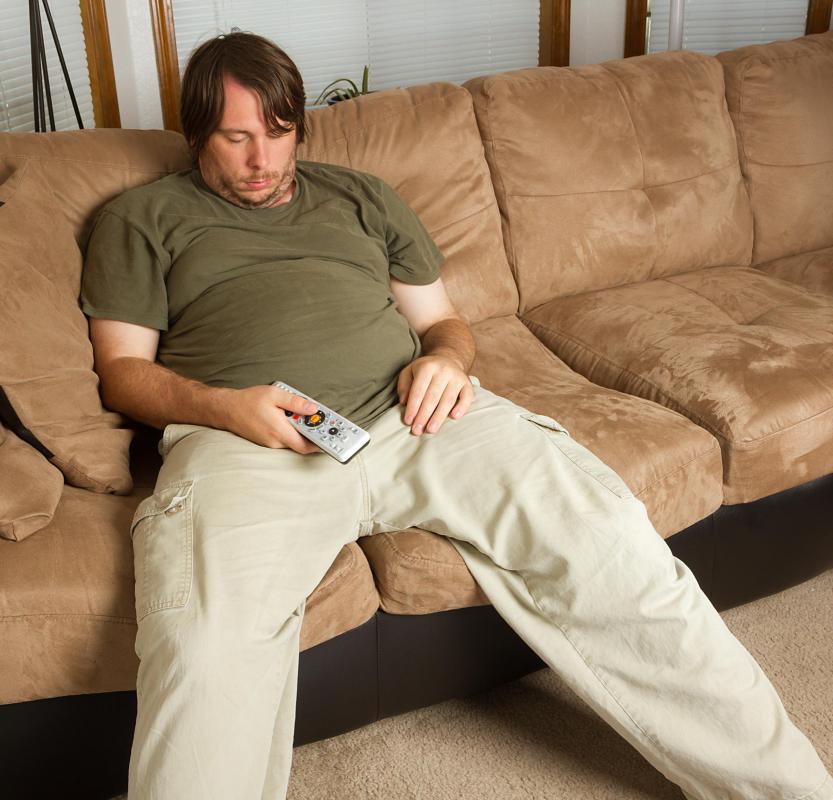At TheHealthBoard, we're committed to delivering accurate, trustworthy information. Our expert-authored content is rigorously fact-checked and sourced from credible authorities. Discover how we uphold the highest standards in providing you with reliable knowledge.
What Is the Connection between Self-Esteem and Stress?
The relationship between self-esteem and stress is a complicated one, as these two factors act on and influence one another. Having low self esteem can produce psychological effects that render a person more vulnerable to stressful situations. Consistently high levels of stress can gradually erode even a healthy sense of self-esteem over time. High self-esteem can offer protection from stressful episodes, however, and a low-stress environment can prove beneficial for individuals with lower self-esteem.
Self esteem is the level of regard in which a person holds himself or herself. A person with a healthy, high self-esteem has a generally positive but realistic self-image, including an understanding of both his merits and flaws, with an acceptance of both. Self esteem is typically built during childhood but can be improved or eroded later in life.

Stress refers to feelings of pressure and worry. The causes of stress vary widely, but these feelings often correlate with real-world responsibilities and concerns and are typically more pronounced in people who bear greater burdens of responsibility. A person’s perception of his or her situation is just as important as the actual facts of that situation. One person may view a new work assignment as a wonderful opportunity while another sees it as a terrible burden.

One place where self-esteem and stress interact with one another is in this moment of perception. People with higher self esteem are more likely to make positive assessments of their own capabilities and are thus more apt to anticipate success in new endeavors. The anticipation of success, in turn, makes the thought of embarking on new projects less stressful.

This interaction between self-esteem and stress is more destructive in people with low self esteem. Such individuals tend to feel helpless, powerless, and incapable. These feelings make any task seem more daunting and can cause even ordinary challenges to appear insurmountable.
A lack of assertiveness is one of the common effects of a lower-than-average self esteem. This can lead to a vicious cycle in which low self esteem leads a person to accept more work than he or she can handle. This, in turn, causes increased stress. Self-esteem and stress can form a harmful feedback cycle in such cases. Training in appropriate assertiveness can help to mitigate stress in such situations and thereby aid in the recovery of self esteem.

It is not always possible to avoid stressful situations, but techniques for spotting the buildup of stress and coping with that stress can help to modify the relationship between self-esteem and stress. High levels of stress can cause lower self esteem, but this effect can be minimized if stress is spotted early. Relaxation techniques, time-management programs, and other tools for coping with stress can reduce the impact of stress on self esteem.
AS FEATURED ON:
AS FEATURED ON:
















Discussion Comments
@ysmina-- Okay, so self esteem and stress affect one another. It's like a cycle where one triggers the other.
No wonder it's so difficult to improve self esteem. It requires a lot of work.
@literally45-- I think that the connection between self esteem and stress is the opposite. It's stress that leads to poor self esteem. If that wasn't the case, many people would experience poor self esteem after physical and psychological traumas like abuse.
Our view of ourselves has a lot to do with our environment. If we are in a bad situation or if the people around us treat us badly, we can experience poor self esteem. Perhaps poor self esteem causes some stress, but I think this is minor. It's stress that has a major negative affect on self esteem and self worth.
Low self esteem is a cause of stress because it leads to anxiety and depression. For example, anxiety causes feelings of fear an uneasiness even when an individual is not facing any kind of threat. Naturally this leads to stress. And if someone with low self esteem is also in a stressful situation, the stress that he or she will feel will be greater than what someone with high self esteem will feel.
So it is important for those suffering from self esteem issues, stress and anxiety to work on self esteem first. Improving self esteem will help the individual overcome any other issues.
Post your comments